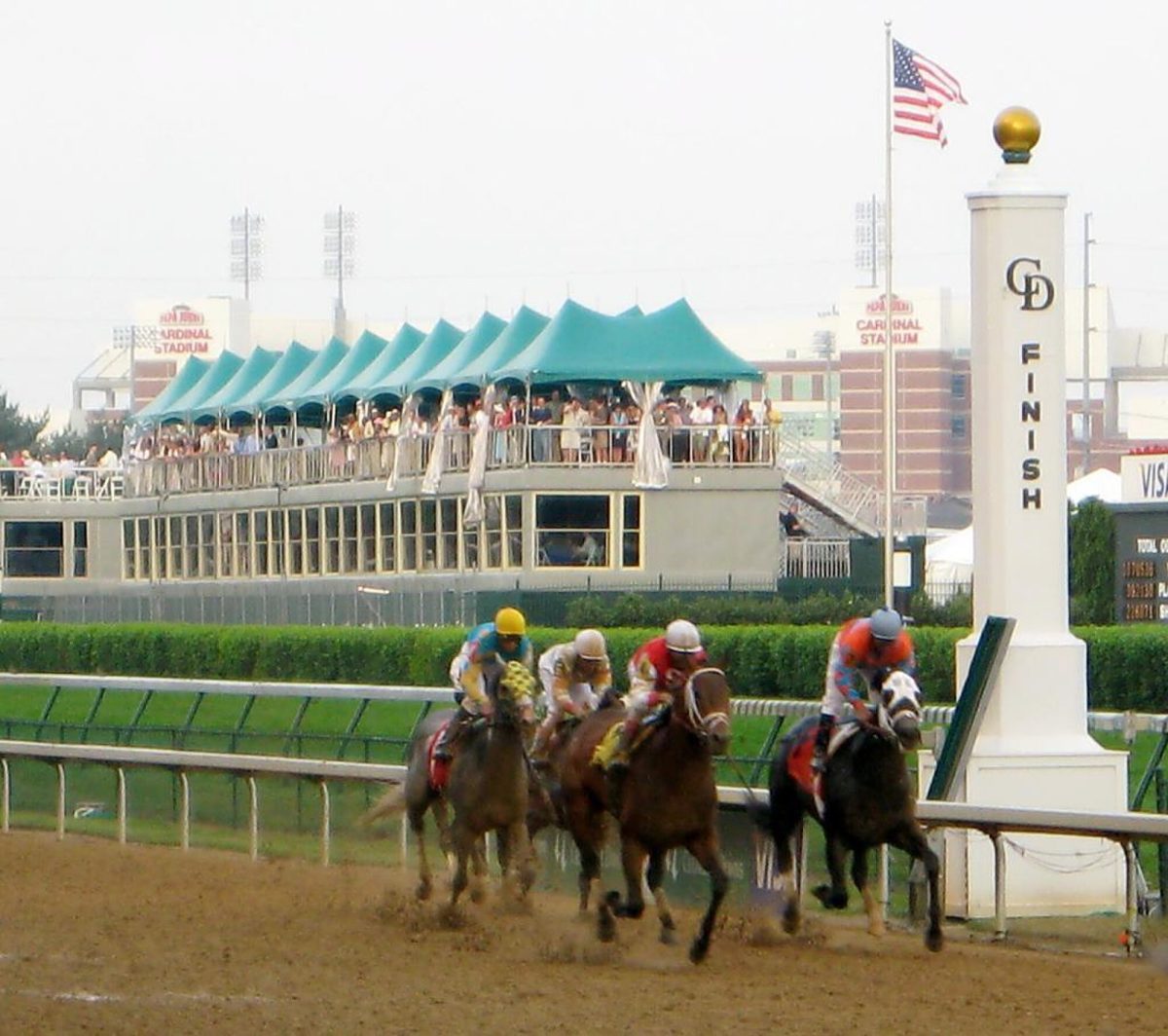With the Kentucky Derby just a week away, a recurring question arises: should the Kentucky Derby even exist? Throughout the years, the derby has had numerous lawsuits questioning the ethics and unexplained horse deaths ostensibly related to events at the race track. This year should be the Kentuky Derby’s last race.
Started in 1875, the Kentucky Derby is a staple of American culture, with millions of fans tuning in each year. But while Churchill Downs, the training center and host of the event, has tried to separate themselves from its abusive past, it is still an undeniable part of the foundation the derby was built on. In the early 1900s, books published about how horses were trained for races detailed harsh punishment methods practiced by trainers at Churchill Downs, including excessive whipping and beating.
It was only with the Horse Protection Act (HPA) being passed in the 1970’s that a step towards horse safety in the derby community was taken. Unfortunately for the history of the Kentucky Derby, though one abusive method was outlawed, another simply replaced it.
“Over the last 12 years, the overall risk of fatality within three days of racing has decreased by over 30%, but the incidence rate of sudden deaths has not changed significantly,” Lecturer in Research and Numerical Skills Dr. Euan Bennet said to the University of Glasgow student newspaper. This suggests that while interventions have been made which have contributed to a reduction in catastrophic injury, there are different sources of risk for sudden death which have not yet been identified.
One of the more modern and common methods of abuse is giving the horses steroids. The steroids prevent the horses from recognizing serious injuries, causing them to continue to run and oftentimes worsening their injuries.
“The researchers identified a notable risk factor related to race day medication,” the University of Glasgow writes. “Horses who were recorded as being administered with furosemide were 62% more likely to experience sudden death compared to horses that weren’t on furosemide.”
Multiple Kentucky Derby winners have been dethroned because of their failed post-race drug tests and, worse, many others have died due to injuries that have been ignored. Multiple lawsuits against Churchill Downs have led to investigations, the most recent one being in 2023, when four horses inexplicably died during the Kentucky Derby.
“While a series of events like this is highly unusual, it is completely unacceptable,” Churchill Downs said in response to the 2023 horse deaths. “We take this very seriously and acknowledge that these troubling incidents are alarming and must be addressed. We feel a tremendous responsibility to our fans, the participants in our sport and the entire industry to be a leader in safety and continue to make significant investments to eliminate risk to our athletes.”
Accepting horse deaths as just part of racing is not only morally bankrupt but also a business model doomed to fail.
— Sara Amundson
In the Kentucky Derby’s defense, they have made stricter rules when it comes to caring for horses. All the measures are in response to a lawsuit or a scandal, rather than being preventative. Churchill Downs appears to be more concerned about its image and will only react when the Kentucky Derby’s reputation is at stake, which has been and will continue to be incredibly harmful for the horses. Animal advocacy groups such as PETA have been advocating for improved horse racing regulation without much of a response from Churchill Downs.
“Accepting horse deaths as just part of racing is not only morally bankrupt but also a business model doomed to fail,” president of the Humane Society Legislative Fund, Sara Amundson, said. “We demand a seismic shift in industry practices – the racing industry must embrace stringent protective measures for horse safety and welfare or face inevitable obsolescence.”
If hundreds of horses’ deaths do not cancel out the the entertainment or money that the Churchill Downs generates, either stricter measures need to be thoroughly enforced or this year’s Derby should be the final race.




